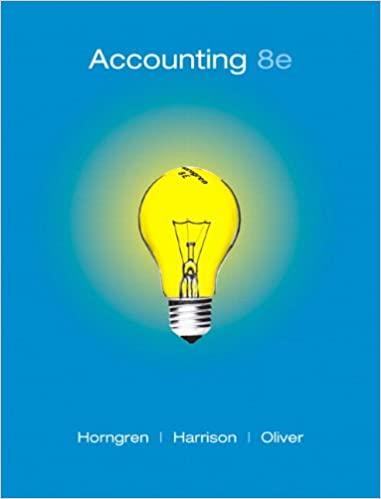In an effort to find alternate revenue streams for their athletic program, as well as to enhance the game day experience for fans, Eastern Michigan University recently ran a pilot program to sell beer at a home football game. Despite an approximate $3,000 net loss on the program, the pilot was deemed a success because it gave them valuable information needed about fan interest and required infrastructure if they decide to move forward with more football beer sales in the future. One potential reason for the net loss was the low attendance at the Sept. 26, 2015 game against Ball State University. Attendance for the game was 4,463, much lower than their normal attendance of approximately 6,000 fans. However, you should assume that the demand for beer (i.e, the percentage of fans that buy beer) has been correctly estimated by the pilot. In a normal season, EMU has six home football games. For this pilot program, EMU rented some infrastructure items (i.e, tables, tents, hedges and other equipment) that would be purchased if they decided to sell beer on an ongoing basis. One of the goals of the pilot program was to give administrators information on how much they could pay for this infrastructure and still earn a profit. Read the attached article for all other case data. Required 1. Identify the fixed and variable costs associated with this pilot program (as specified in the article). Assume that a 16-oz cup of beer is the cost object Write a profit equation for beer sales at EMU football games. What attendance would have been required for the beer sales at the EMU v. Ball State game to break even? Given the current cost structure, is it likely that beer sales would be a good revenue stream? Why or why not? 2. 3. 4. The 2014 season's average home attendance was 15,025 (though this number has been disputed by some). What would the net profit loss) of the pilot have been at an average game in 2014? Assume that the demand for beer has not changed Assuming "nomal' game attendance and that the demand for beer has not changed, hov much could EMU pay for infrastructure and still eam a profit over one six-game season? In an effort to find alternate revenue streams for their athletic program, as well as to enhance the game day experience for fans, Eastern Michigan University recently ran a pilot program to sell beer at a home football game. Despite an approximate $3,000 net loss on the program, the pilot was deemed a success because it gave them valuable information needed about fan interest and required infrastructure if they decide to move forward with more football beer sales in the future. One potential reason for the net loss was the low attendance at the Sept. 26, 2015 game against Ball State University. Attendance for the game was 4,463, much lower than their normal attendance of approximately 6,000 fans. However, you should assume that the demand for beer (i.e, the percentage of fans that buy beer) has been correctly estimated by the pilot. In a normal season, EMU has six home football games. For this pilot program, EMU rented some infrastructure items (i.e, tables, tents, hedges and other equipment) that would be purchased if they decided to sell beer on an ongoing basis. One of the goals of the pilot program was to give administrators information on how much they could pay for this infrastructure and still earn a profit. Read the attached article for all other case data. Required 1. Identify the fixed and variable costs associated with this pilot program (as specified in the article). Assume that a 16-oz cup of beer is the cost object Write a profit equation for beer sales at EMU football games. What attendance would have been required for the beer sales at the EMU v. Ball State game to break even? Given the current cost structure, is it likely that beer sales would be a good revenue stream? Why or why not? 2. 3. 4. The 2014 season's average home attendance was 15,025 (though this number has been disputed by some). What would the net profit loss) of the pilot have been at an average game in 2014? Assume that the demand for beer has not changed Assuming "nomal' game attendance and that the demand for beer has not changed, hov much could EMU pay for infrastructure and still eam a profit over one six-game season







